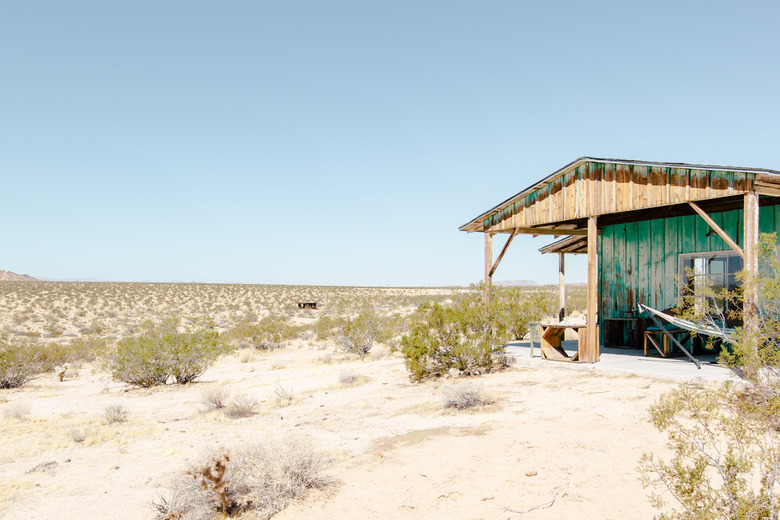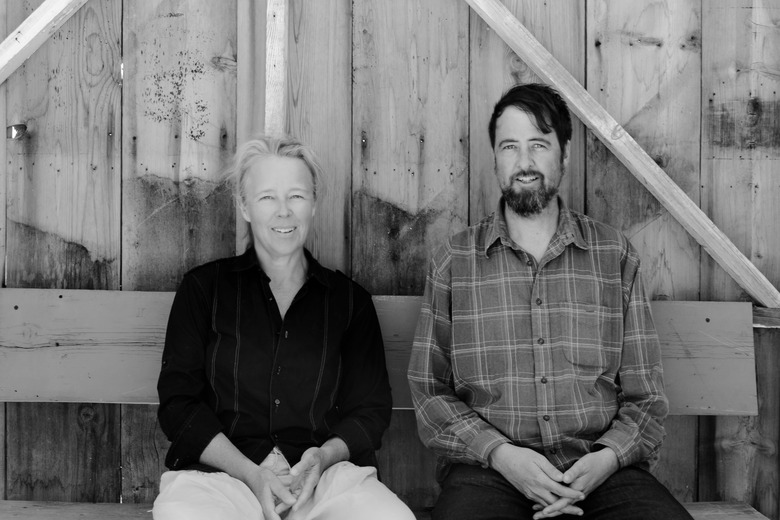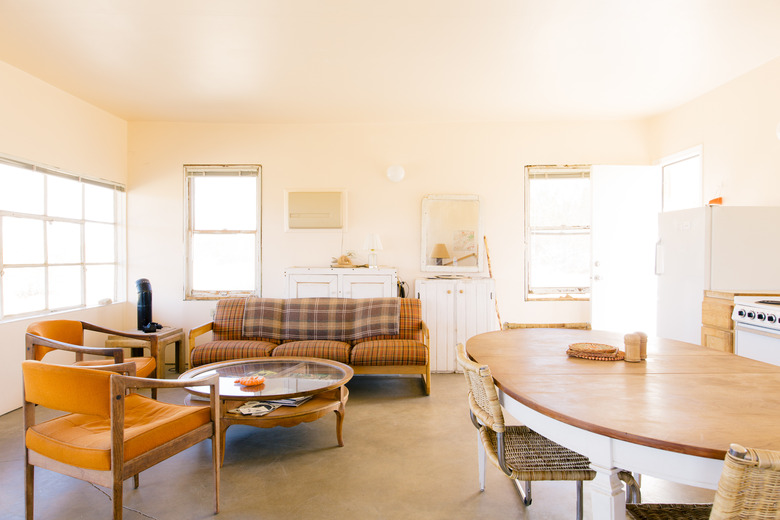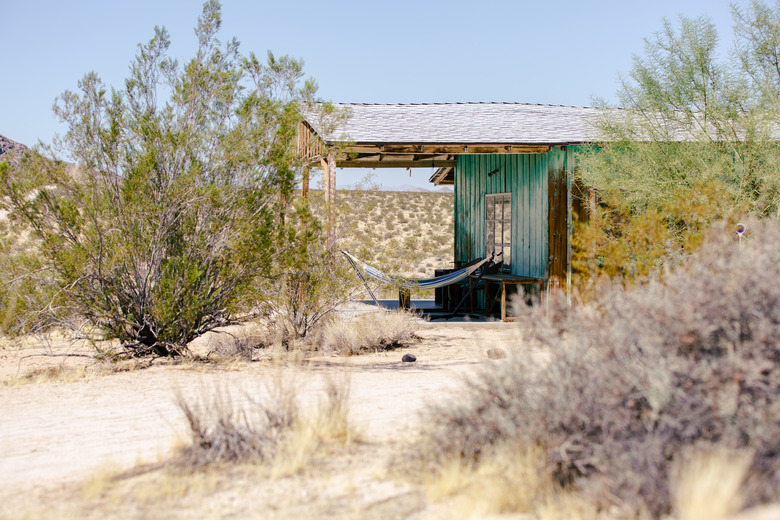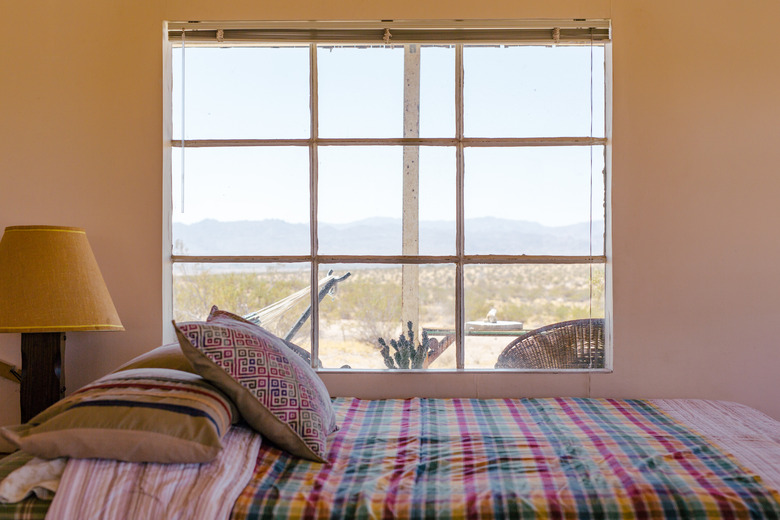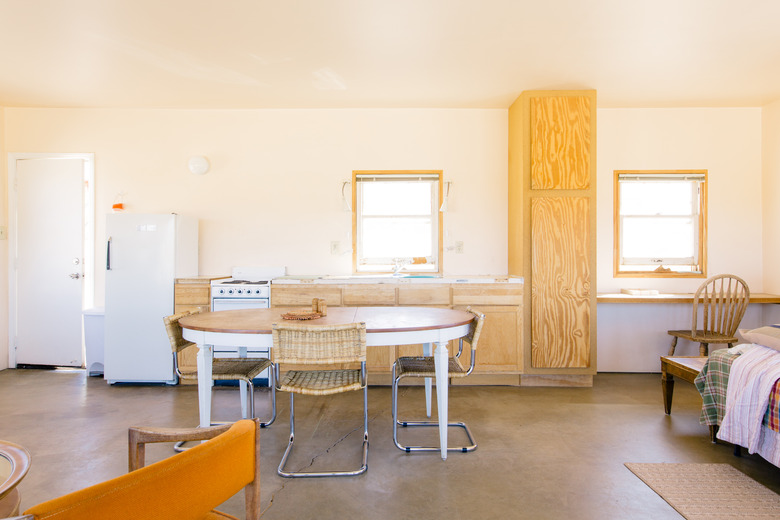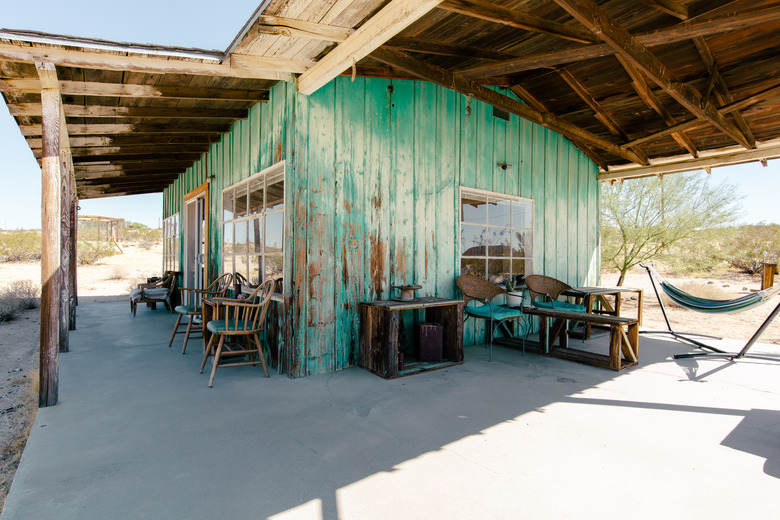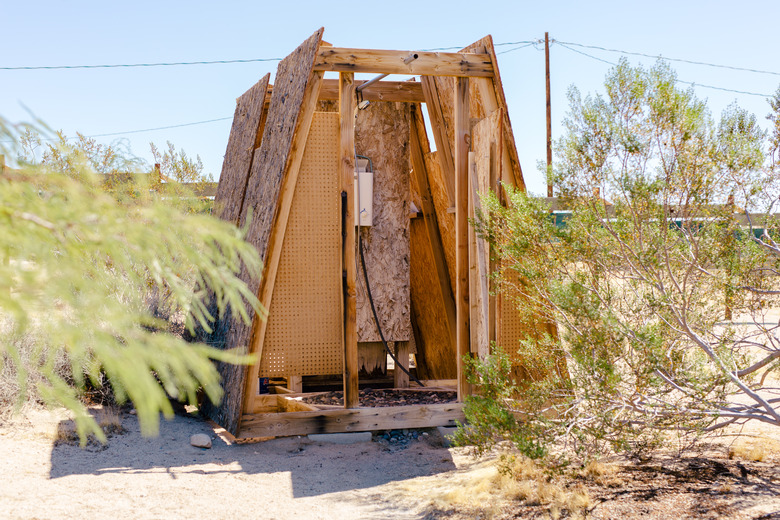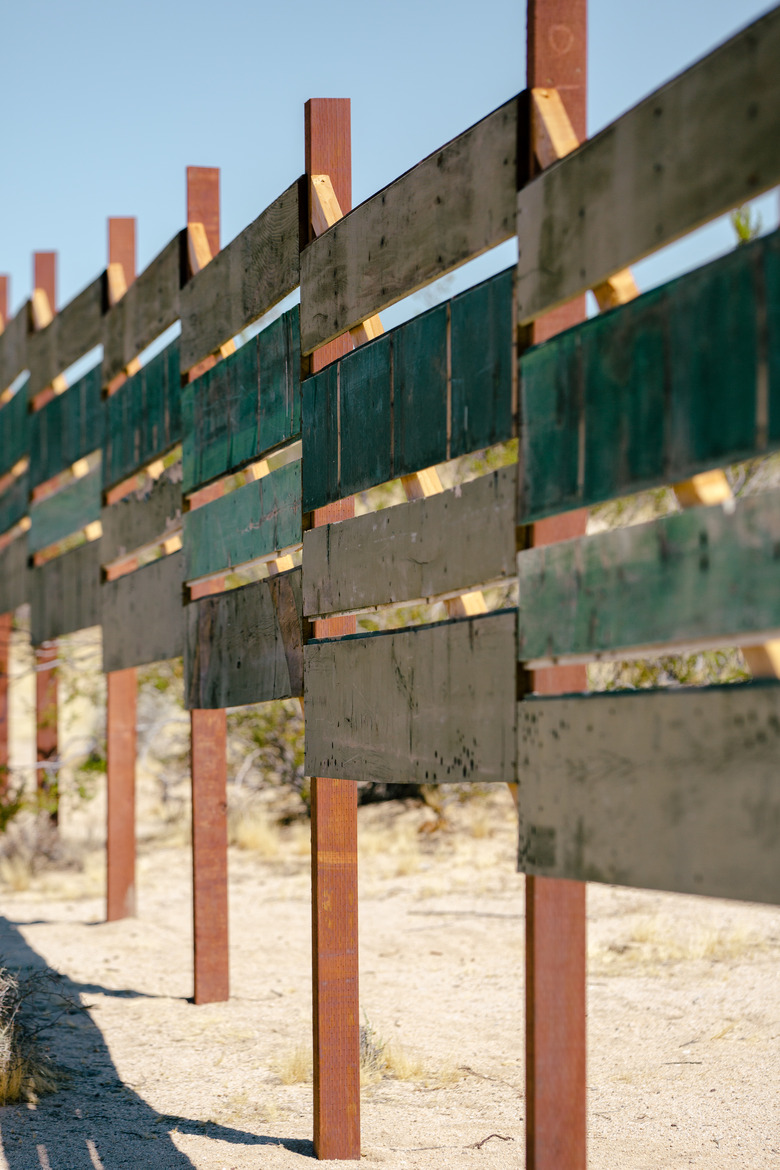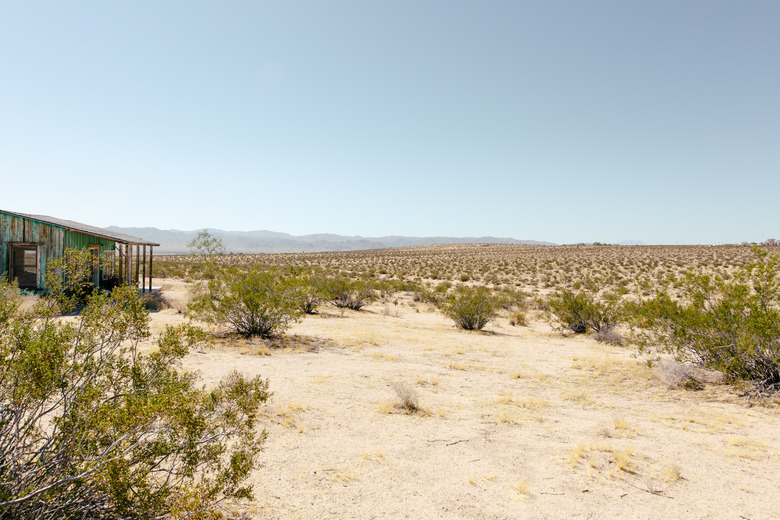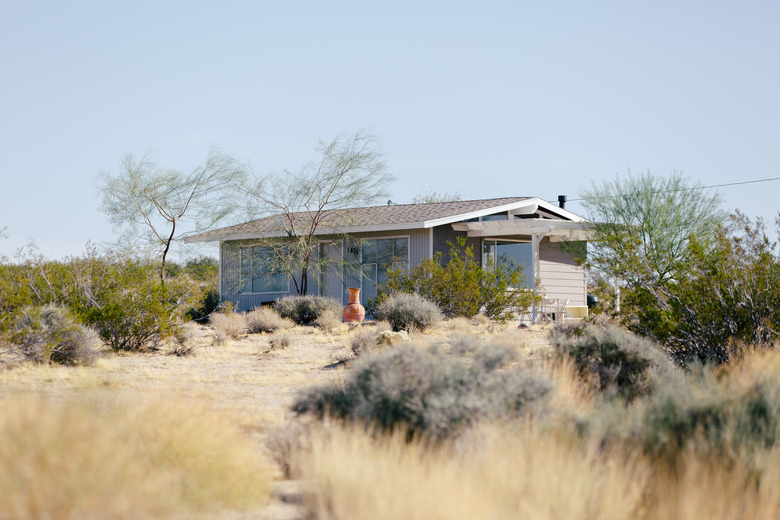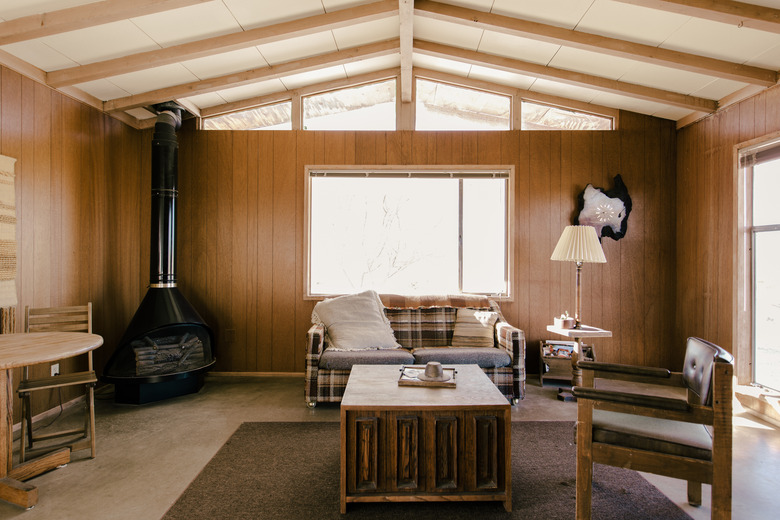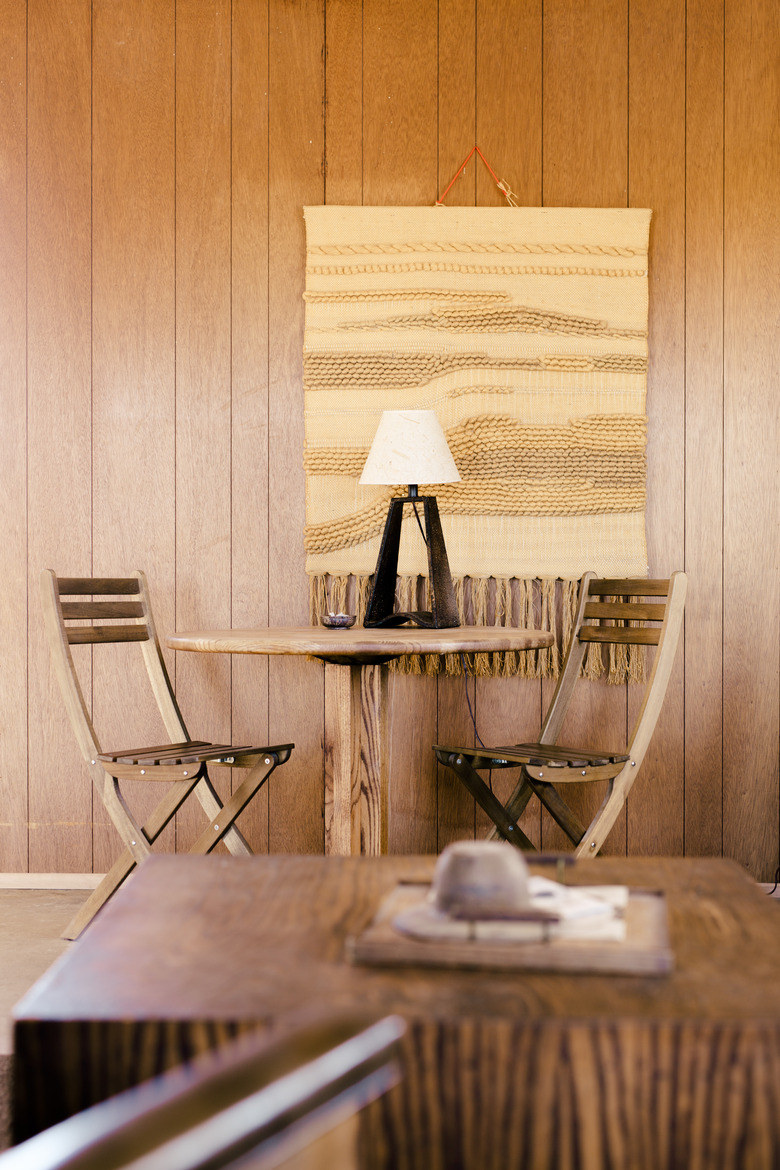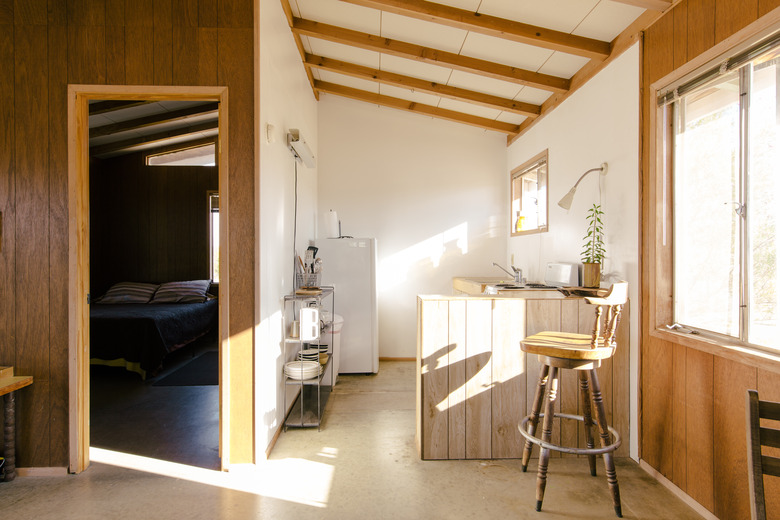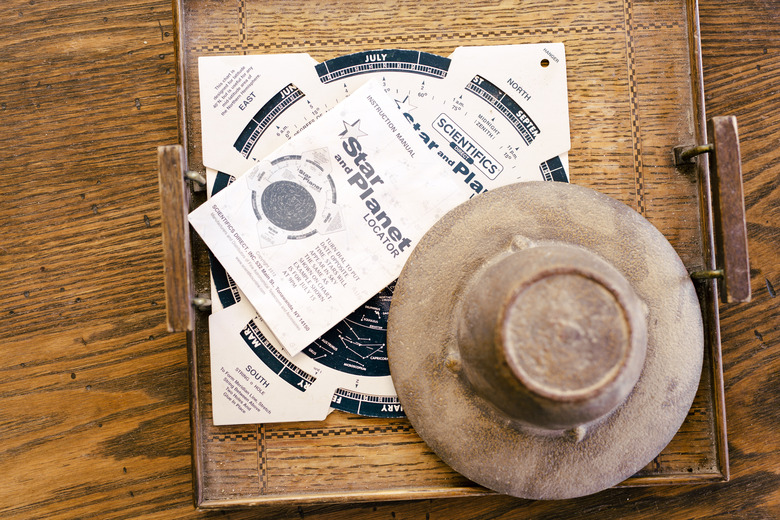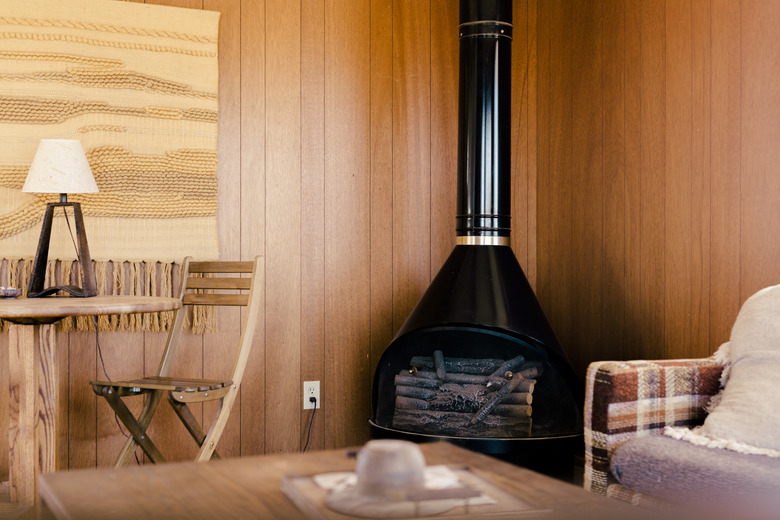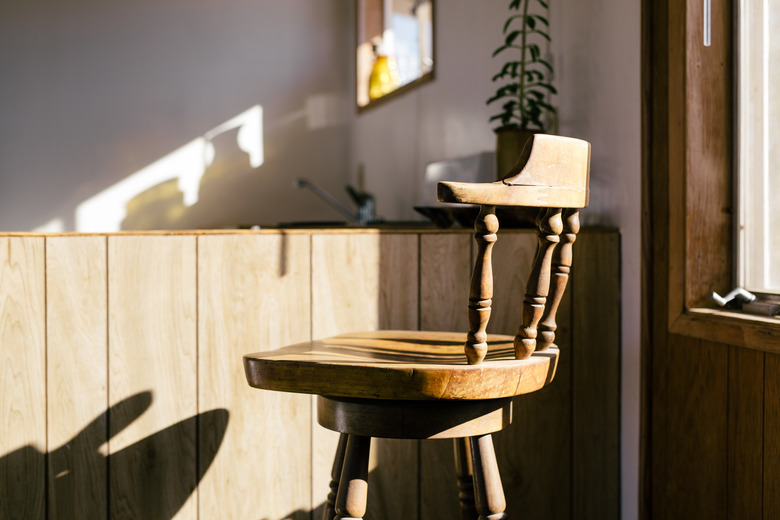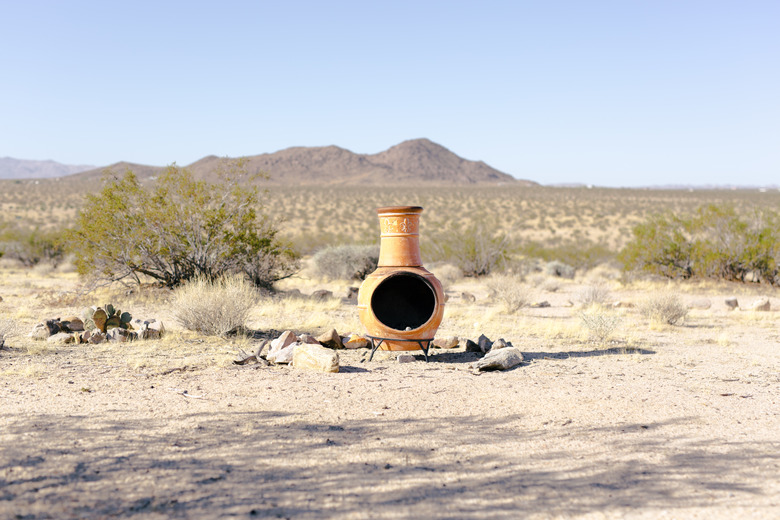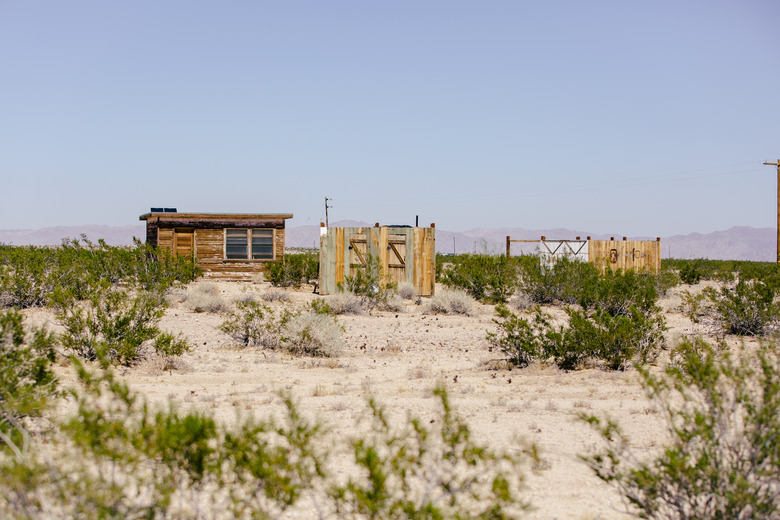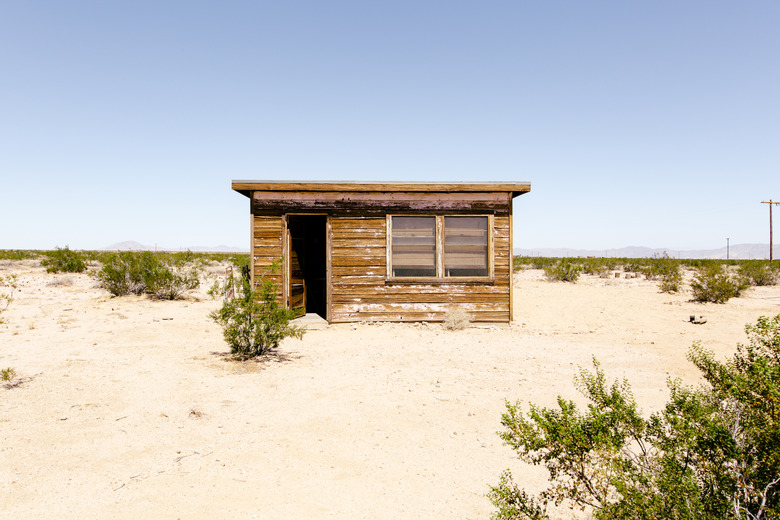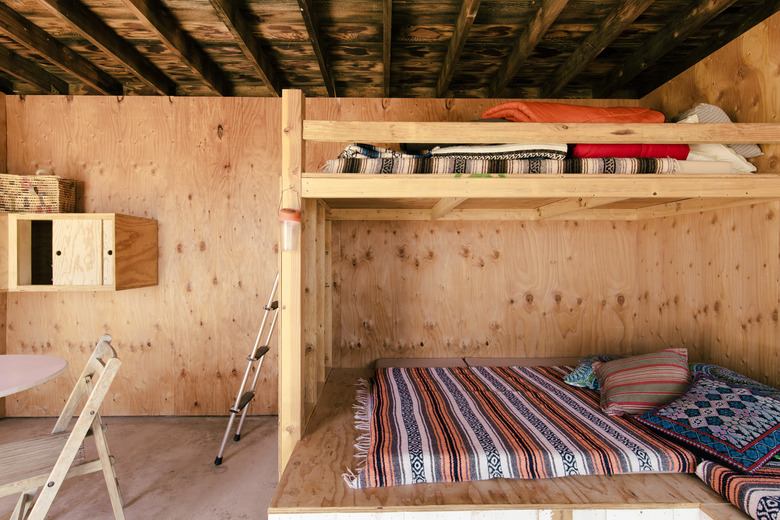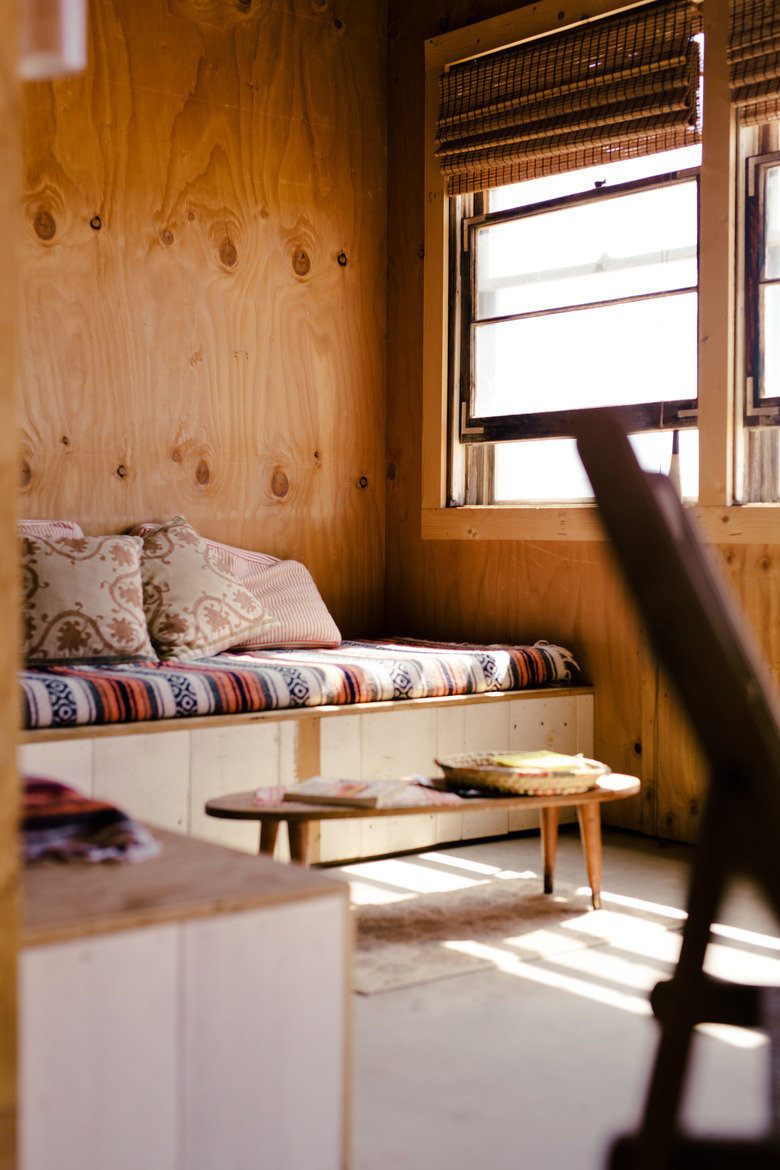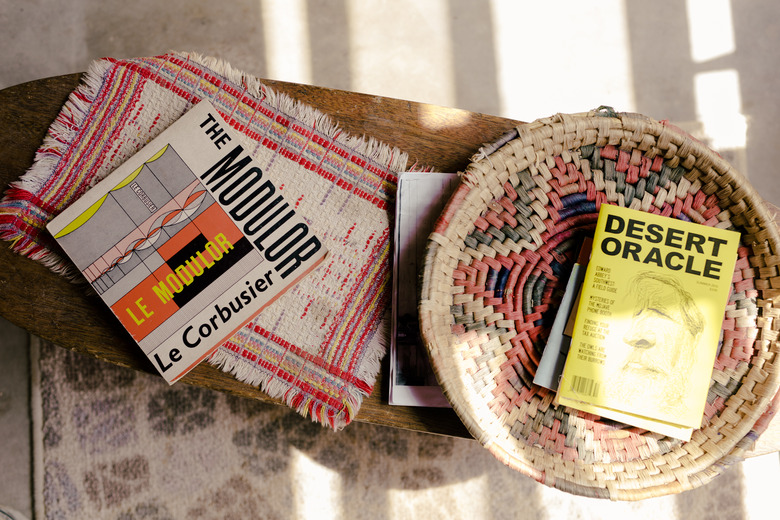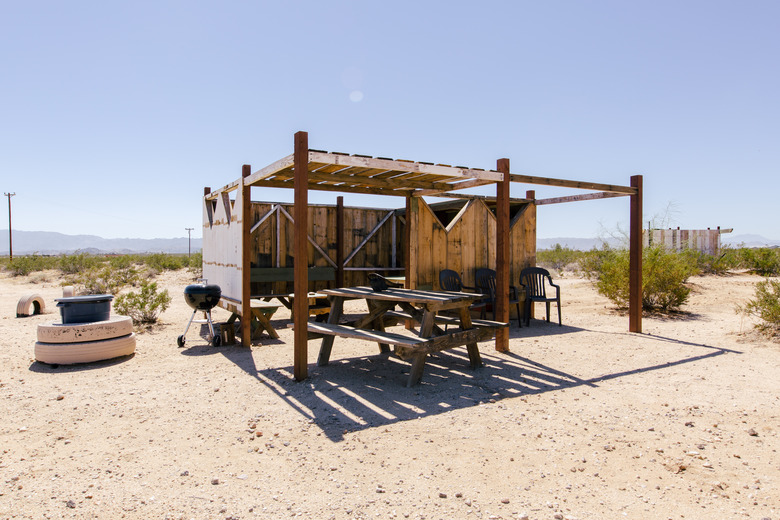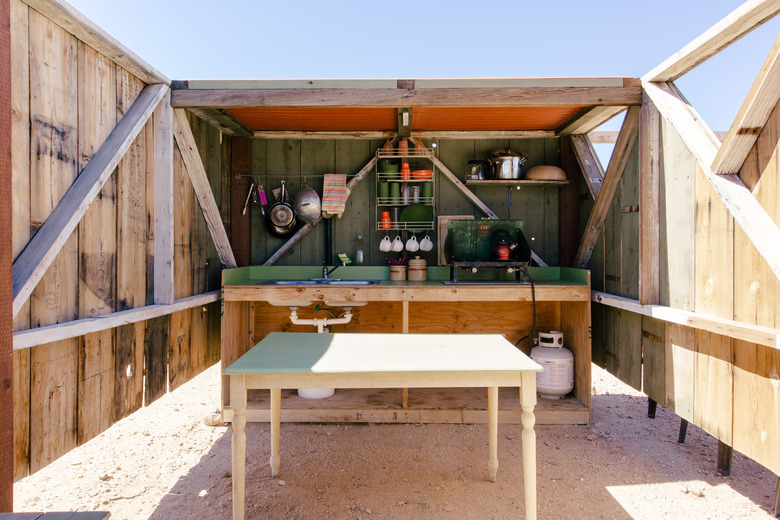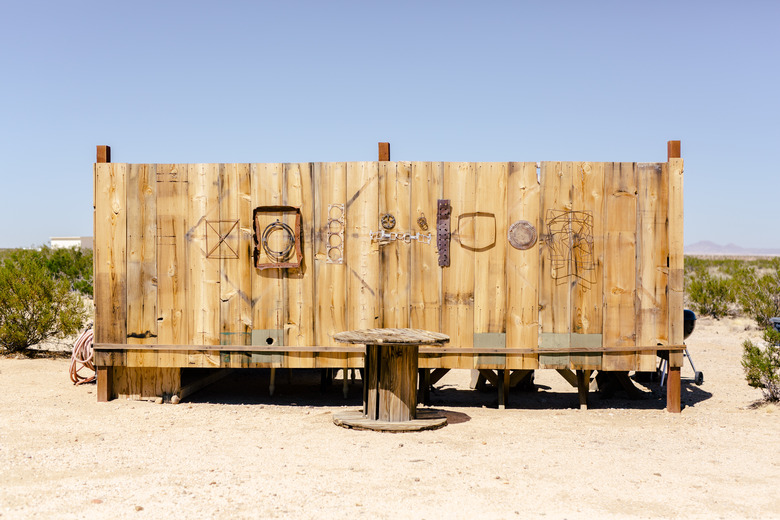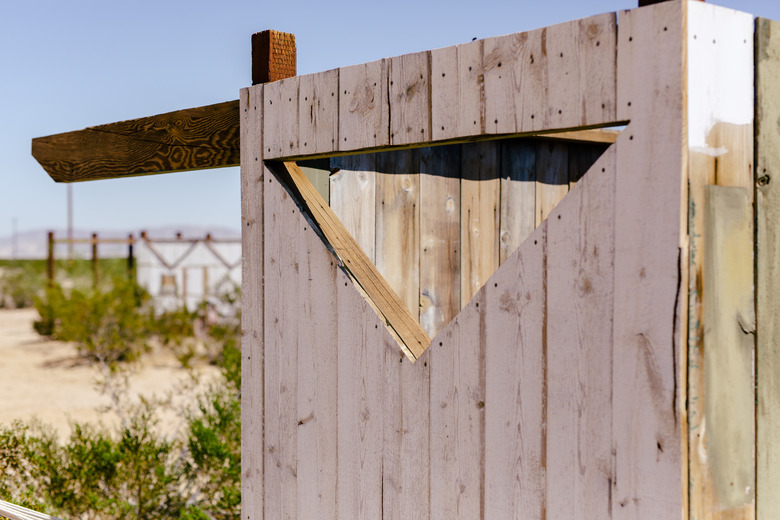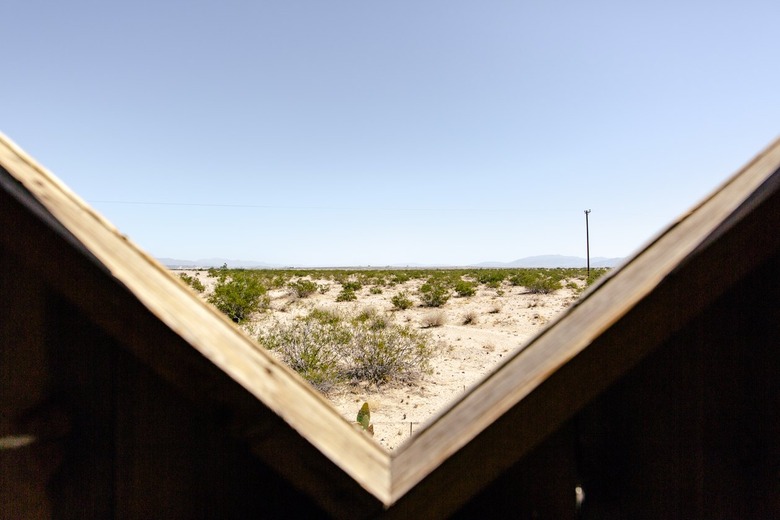The New Hometeliers: JT Homesteader
There's silence in the desert. A life without traffic, without screens or social media — respite from the incessant information muting our brains, like how city light dulls the stars. And it's a glimpse of a quieter life, closer to nature and under the cosmos, that Jay Babcock and Stephanie Smith provide with their three renovated homesteader cabins in Southern California's Joshua Tree.
Emblematic of a growing trend around the country, Jay and Stephanie are small-scale entrepreneurs who offer their properties as short-term rentals to a new breed of traveler — one who eschews traditional accommodations for a more authentic experience. The trio of properties, collectively known as the JT Homesteader cabins, offer as uncynical and unmediated an experience of Joshua Tree as any traveler could wish for.
"People wanted it immediately," says Jay of opening their first cabin back in 2010. "Not just people traveling to the park. We started getting a substantial number of people from Los Angeles and other parts of Southern California who wanted to be in a quiet, peaceful, wild space, where they had time to be inside a natural landscape and do whatever they needed to do — whether it's contemplate the larger mysteries of the cosmos, to be with a loved one, or just get some space to think through things in their own life."
For Stephanie and Jay, the act of hospitality is a natural extension of their own decampment from city life to the desert. Stephanie, an architect and Harvard grad, taught at SCI-Arc in downtown L.A.; Jay was founder and editor of Arthur, a beloved but retired lit-minded magazine about art, music, and counterculture. In 2010, they hit the eject button from modern urbanity and headed to Joshua Tree, the dusty town 125 miles inland from Los Angeles, on the edge of the same-named national park's 800,000 acres of gorgeous Mojave Desert. They put down roots in Coyote Valley, a North Joshua Tree wildlife corridor about fifteen minutes from the park. It wasn't long before they opened their doors to other seekers of the serenity and unspoiled beauty of the region.
"They all keep to the original homesteading spirit of small size and simplicity. An experience embedded in nature." — Stephanie Smith
Collectively drawing hundreds of visitors annually, their cabins include Saturn, a small, sleeping-only bunkhouse with outbuildings; Sonora, a one-room cabin with only the toilet and shower outside; and Sunever, offering the highest level of comfort, with both a bedroom and indoor 1/2 bath (sink/toilet) with outdoor shower. "They all keep to the original homesteading spirit of small size and simplicity," says Stephanie. "An experience embedded in nature." Both Sonora and Sunever cabins sit on an expansive five acres of wilderness; Saturn's acreage is still impressive at half that.
The Homesteader name is a reference to a government program, run between 1863 and 1977, that allowed settlers to claim parcels of land in the Mojave as long as they built cabins on them within three years. Many built but not everyone stayed, leaving abandoned structures strewn throughout the area. It's this heritage that Stephanie seeks to honor in the design of the JT Homesteader cabins.
"Stylistically, I treat the cabins as 'found objects' and work to preserve and protect the original creators' spirit," says Stephanie of her approach. "Many of the homestead cabins out here were built by hand in the 1950s and designed by their owners." This means leaving things as they found them whenever possible, including, for instance, windows that are all different sizes, as they were in the Saturn and Sonora cabins. Whenever possible, she retains the original paint and wood—even when it has to be reclaimed. "When I bought Saturn, about half of its wood siding had been pulled from the exterior and scattered around the property," she recalls. "I gathered it back up and re-installed it in order to get that consistent pink paint across the whole structure."
Finally, she also keeps the original footprint of each building, preserving the rectangular design that characterizes the classic homesteader cabins — structures she likens evocatively to "Monopoly pieces scattered throughout the landscape."
Mirroring their respect for the structures themselves, the couple also wanted to preserve the character, community, and ecosystem of the area by not displacing long-term denizens. "The three cabins that we own and operate as Airbnbs had been abandoned and unoccupied," says Jay. "No one was living there. We didn't remove anything that was a long-term rental. We took existing, unwanted housing and used them as places for travelers to have shelter in the wild."
"Other [developers] are letting their land be 'scraped,' which means removal of everything above the ground, so a total loss of habitat. What we try to do is un-develop the land. We try to make it more wild. Re-wilding it, really." —Jay Babcock
The principle extends to non-human inhabitants as well. "Other [developers] are letting their land be 'scraped,' which means removal of everything above the ground, so a total loss of habitat," Jay laments. "What we try to do is un-develop the land. We try to make it more wild. Re-wilding it, really."
"We don't fence them," he continues. "We don't allow large groups and we don't allow amplified sound. We add native plans and trees to the properties so that the land is renewed and it can support greater diversity and a greater volume of wildlife — these things are important."
This is more than an alternative to tented camping or inexpensive accommodation in a stunning corner of the earth (though it's definitely both of those). For Jay and Stephanie, it's about sharing their love of serenity and nature. It's about respecting the Earth we inherited and seeing the way life used to be. The stars. The silence.
For Jay and Stephanie, this is what success looks like. "We realized that we could make a modest living, modest income, by owning property out here, stewarding it with a wildlife corridor ethic, and renting it to people," Jay says. Indeed, their brand of subdued capitalism feels like a (quietly) disruptive alternative to our economy's nonstop bubbles, busts, and rapacious pursuit of scale and profit at the expense of sustainability, longevity, and corporate responsibility. It's a business, but one that operates at a more human scale, inspired by the pioneering spirit of the original homesteader mentality.
"It's a virtuous circle in which everyone gets something good out of the arrangement: we get some income; the space is now protected by a human presence from the other [developers] and people who degrade the land; and the guests get to experience what is their birthright: clean air, bright stars, and encountering wildlife on its own terms. So it seems like everyone can win."
Photography: Paul Anderson
Words: Elliott David
